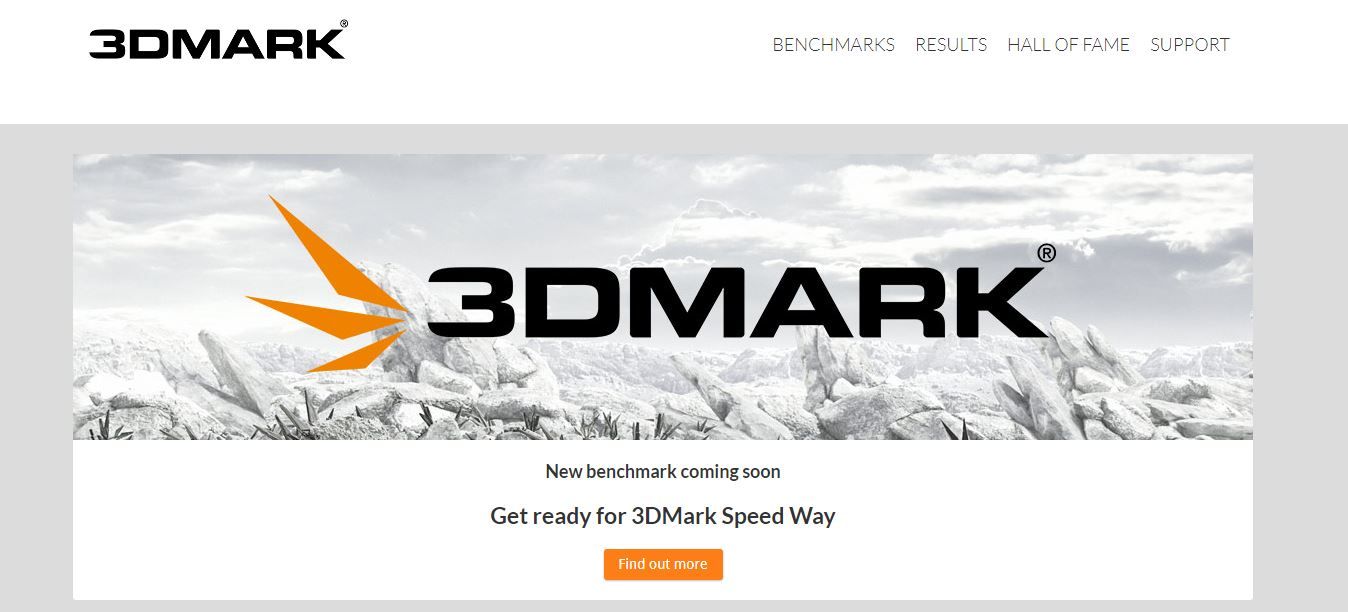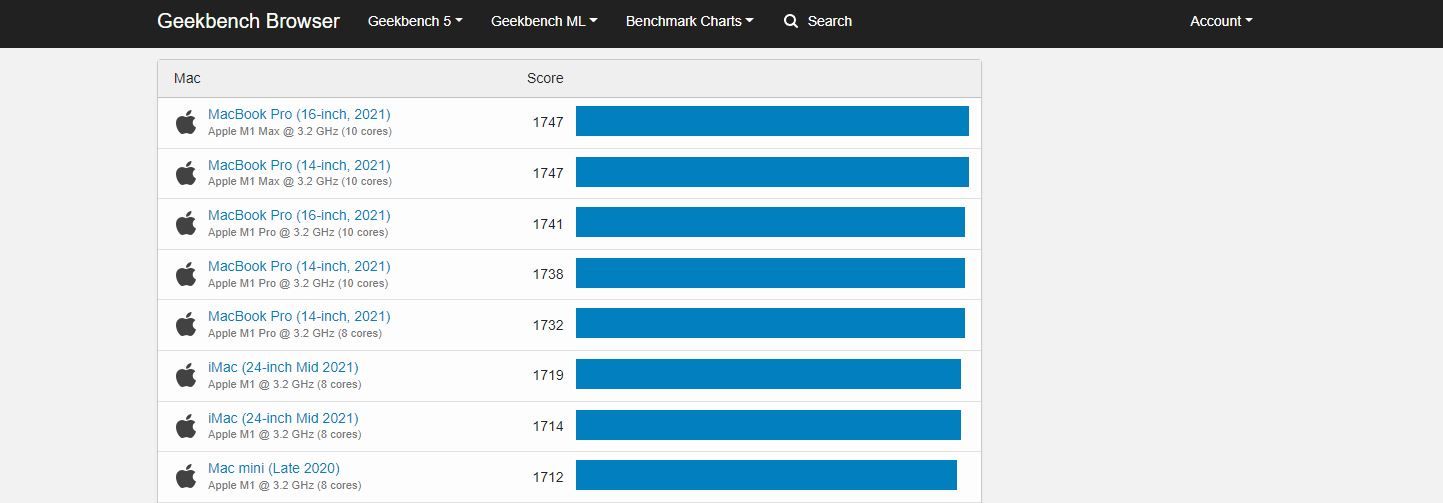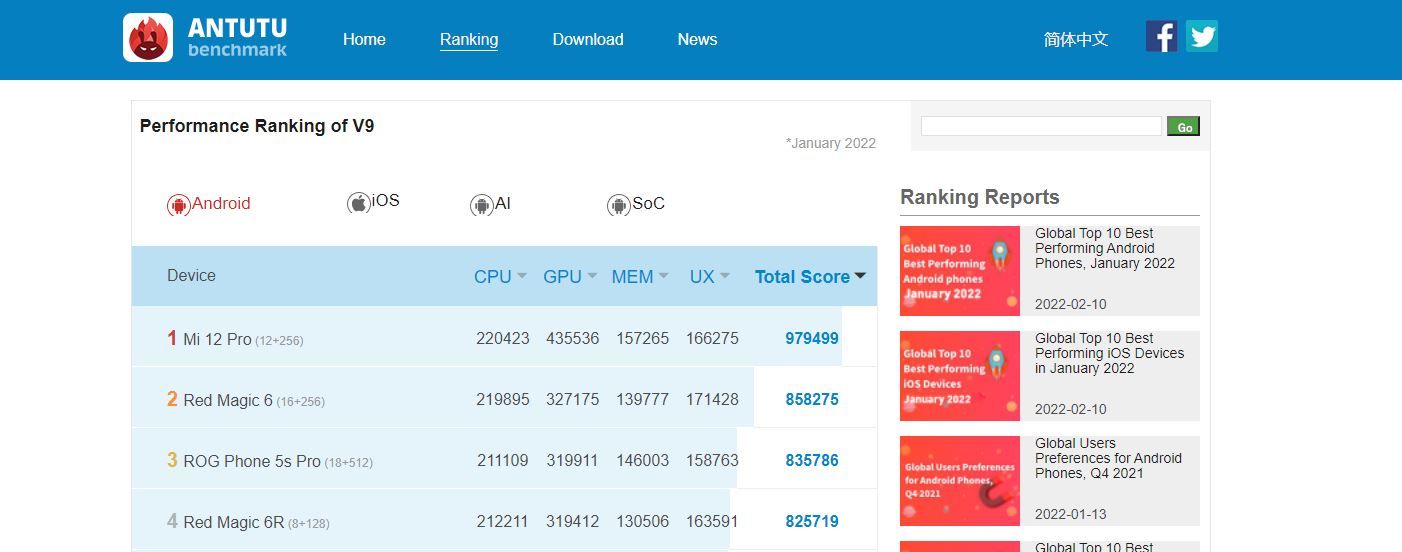Whether you're buying a laptop, a piece of PC hardware, or a smartphone, you want the best performance for your money. Sure, you can look at the specs or get opinions from existing users. But for the most detailed insight, you need to refer to benchmark tests.
There are loads of sites that deal in benchmarks. These websites can throw a whole host of charts and numbers at you for almost any piece of hardware on the market.
But what do they mean? And how can you use this information to make an informed decision?
What Is Benchmarking?
Benchmarking involves running a series of software tests on a piece of hardware that replicates the kinds of tasks it performs in real-world usage.
So, a CPU in a laptop will be subjected to assorted mathematical tests to measure how quickly it can compress or encrypt data. A hard drive is tested on the speed it can write a single, very large file or thousands of very small files.
Benchmarks for a GPU (the graphics processing unit, or graphics card) measures things like the frame rate achieved while rendering different numbers of objects on screen at different levels of complexity and different resolutions.
The results don't mean much on their own. But once you have subjected two products to the same tests, you can compare the results and begin to judge which device offers better performance in that area.
How to Benchmark Your Own Hardware
If you want to try it out for yourself to see how your own kit compares, there are plenty of apps that can do the job.
The easiest app to get started with is Geekbench. This is a cross-platform tool that works on Mac, Windows, iOS, and Android. As such, it enables you to compare performance across most operating systems.
Geekbench focuses primarily on processor and memory performance. For more detailed tests of other components like graphics cards and drive speeds, NovaBench and PassMark are good for desktop devices, and AnTuTu is a good alternative for Android phones.
Note that a huge number of variables will affect the results of benchmark tests. Even something as simple as the level of charge in your laptop or smartphone battery could skew the results.
Most serious organizations that perform benchmarking tests will make an effort to minimize these variables. Don't be surprised if your kit—which you've no doubt subjected to many months of real-world use—produces different results.
Common Benchmark Tests and What They Mean
Benchmark tests differ based on the software used or the person doing the testing. Since different tests will often focus on different areas, you can use multiple programs to better understand how the hardware performs.
Here are some of the most common tests, what they mean, and what to look out for.
Processors
-
Floating-point math tests: Used by most tools, this tests the processor's ability to perform a series of basic mathematical functions. A floating point indicates that the numbers used in the function involve fractions. Integer tests using whole numbers are also tested separately. The results will most commonly be displayed in milliseconds, so a lower number likely indicates faster performance.
- Compression tests: These test the speed at which the processor can compress large blocks of data in a lossless way. The test will likely express the results as a speed in kilobytes per second, so a higher number is better.
- Single-core tests: Used by services like CineBench or PassMark, these tests focus on the performance of a single-core in the processor. Good single-core performance is essential, as a lot of software is not optimized for multi-core processing.
Graphics Cards
-
2D graphics tests: 2D graphics tests focus on drawing, moving, and scaling lines, fonts, and elements within a user interface. This is often measured in frames per second, so a higher or more consistent number is better.
- 3D graphics tests: A major test for gaming and graphics-intensive applications, and used by tools such as Heaven Benchmark (whose test you can see in the video above) or 3DMark. These tests involve rendering a few or very many 3D objects on screen at once. These tests take place at varying levels of complexity, such as detail, shadow, anti-aliasing, and more. They also often test different APIs such as DirectX and OpenGL.
Hard Drives
- Sequential tests: Hard drive benchmarks often focus on sequential read and write speeds and random read and write speeds. Sequential refers to files stored in a single chunk on the drive, such as a large file written to a non-fragmented hard drive. Often, these results are in MB per second, so a higher number is better.
- Random tests: Random tests show how the drive performs when required to access lots of data stored randomly throughout the drive. Random read and write times will be considerably slower than sequential times.
Smartphones
Smartphone-centric benchmark apps will test most of the same elements as desktops and laptops. But they also include a few extras, such as:
- SD card read/write speed: Similar to hard drive tests, this determines the speed at which your phone can access data read or written to a memory card or internal storage. As with hard drives, it's measured in MB/s, so a higher number indicates faster performance.
-
Database IO: Used in most smartphone benchmarking apps like AnTuTu, this measures the speed of reading and writing to the database on the device. Slow performance here can affect the overall performance of a device.
How Important Are Benchmarks?
Benchmarks are useful as a guide to hardware performance, but they are not the be-all and end-all. They are particularly good at showing how performance improves from one generation to the next and can help you gauge the value for money of a product since you can easily see how it compares to similarly-priced alternatives.
Generally, you want to use benchmarks when you have specific requirements. For example, if you're looking to use your hardware for gaming, video editing, or any other specific purpose, a corresponding benchmark is a good solution.
But for everyday computing tasks such as surfing the web, Facebook, or using Office, the performance differences are barely noticeable, especially when other factors affect the speed of your computer.
Find the Best the Internet Can Offer
Hopefully, you now have a better understanding of how benchmarks work. When looking for a new device, what they can do for you can be incredibly helpful, but only as long as you understand how to use them.
Luckily, it's never been easier to find the perfect fit. With so many options, there's no reason not to shop around.





